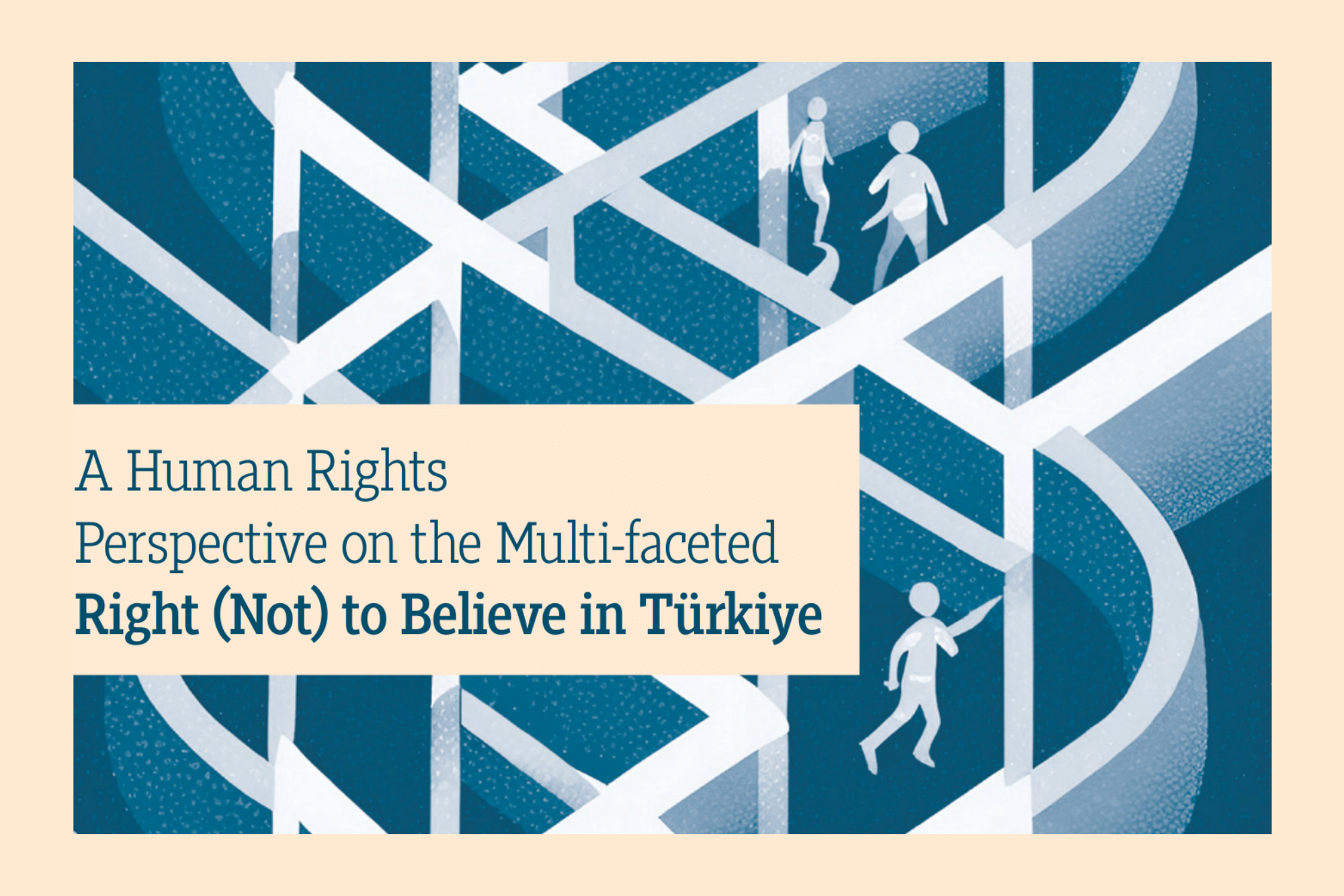‘A Human Rights Perspective on the Multi-faceted Right (Not) to Believe in Türkiye’ report offers a comprehensive analysis on the current situation of the freedoms to believe, not to believe, or to believe in “non-mainstream” doctrines in Türkiye. It also identifies areas of non-compliance with international human rights standards and provides recommendations to authorities for safeguarding everyone’s freedom of thought, conscience, and religion or belief.
The report, authored by Dr Mine Yıldırım, Rümeysa Çamdereli, and Prof. Dr Tolga Şirin, provides a general assessment of the right (not) to believe while also examining this right within the education system. Additionally, it explores the freedom from coercion and addresses issues arising at the intersection of freedom of religion or belief and freedom of expression.
Türkiye’s international human rights obligations and national legislation require robust protection of freedom of thought, conscience, religion, or belief. However, individuals who hold “non-mainstream” beliefs or do not believe often face significant human rights violations and discrimination. The religion field in population registers violates the right to not disclose one’s religion, and the right to conscientious objection to military service is not recognized. Atheists’ requests for cremation are obstructed despite no legal barriers, and their right to assemble is frequently restricted. The national education system’s practices centered on Sunni Islam, interfere with the freedom of religion or belief of various groups, including non-believers. Public resources are heavily allocated to Sunni Islam-focused education, undermining the state’s obligation to neutrality in religious matters. Religious pressure and coercion, particularly against women, children, and young people, are prevalent. This highlights structural gaps in ensuring individual autonomy and accountability in public institutions, families, and religious communities. Furthermore, the criminalisation of religious criticism, especially directed at Islam, severely restricts freedom of expression.
To this end, the following key steps will help safeguard freedom of religion or belief:
- National legislation and implementation should align with international human rights standards, protecting individuals with non-religious or non-mainstream beliefs.
- The religion field should be removed from population registers, and cremation requests should be respected.
- Child’s right to freedom of religion or belief should be protected in education.
- Religious or belief communities’ right to legal personality should be ensured facilitating exercise of rights, transparency and accountability.
- Legal frameworks and policies should address religious coercion, particularly addressing the situation of women and children.
- Laws limiting freedom of expression, particularly regarding religious criticism, should be amended.
You can read more about the report on The Freedom of Belief Initiative webpage.
